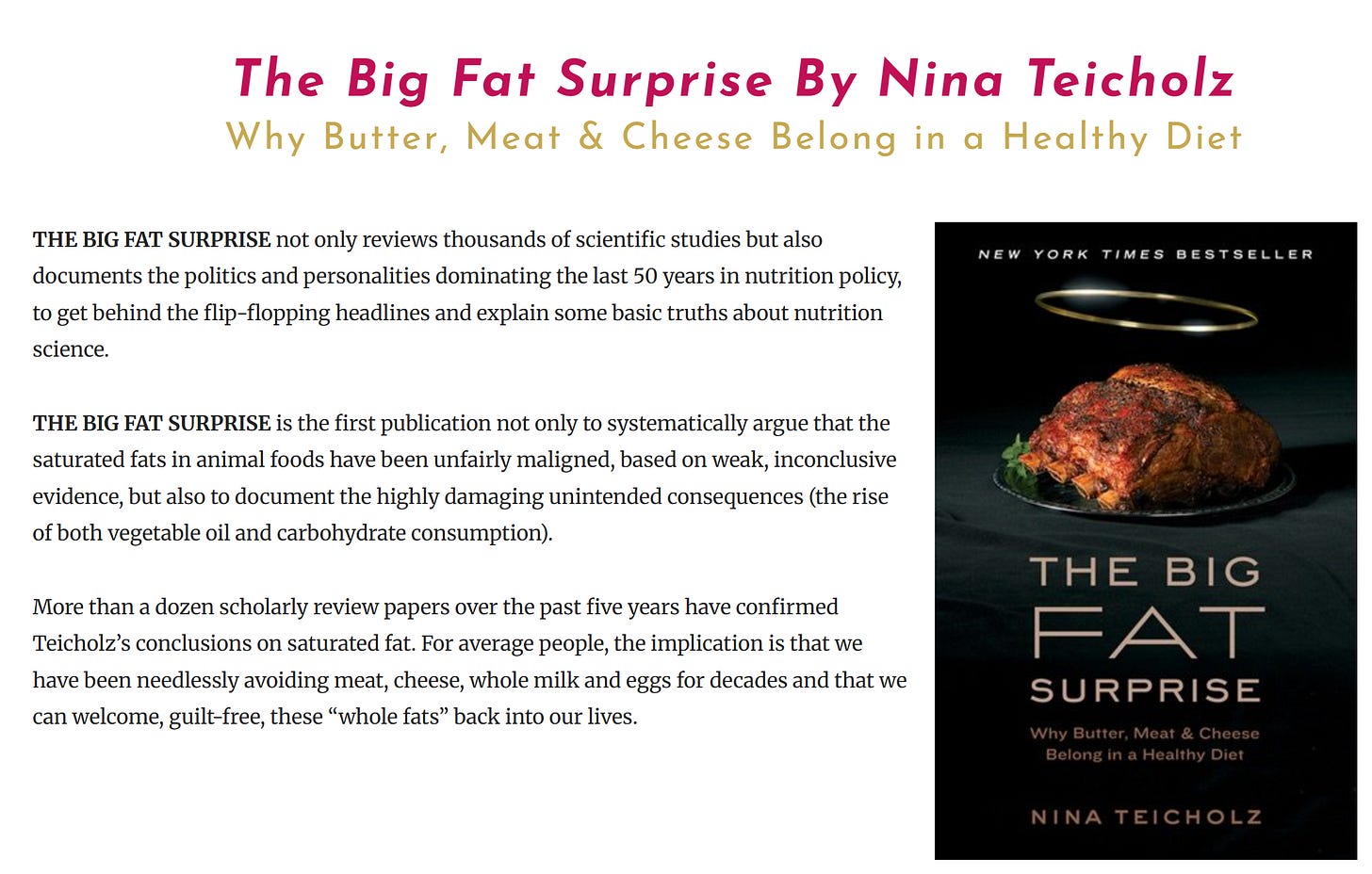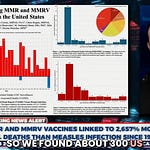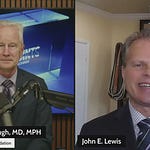By Peter A. McCullough, MD, MPH
For 75 years dietary dogma in preventive cardiology has focussed on reducing saturated fat in the human diet with the goal of reducing LDL-C and rates of coronary heart disease. With the popularity of carnivore and keto diets in recent years, this central thesis to coronary heart disease is being challenged. After a FOCAL POINTS post about the large volume of prior studies on the saturated fat-atherosclerosis hypothesis, Dr. Nina Teicholz reached out to me and said recent evidence had overturned the prior base of evidence. So I invited her on the show.
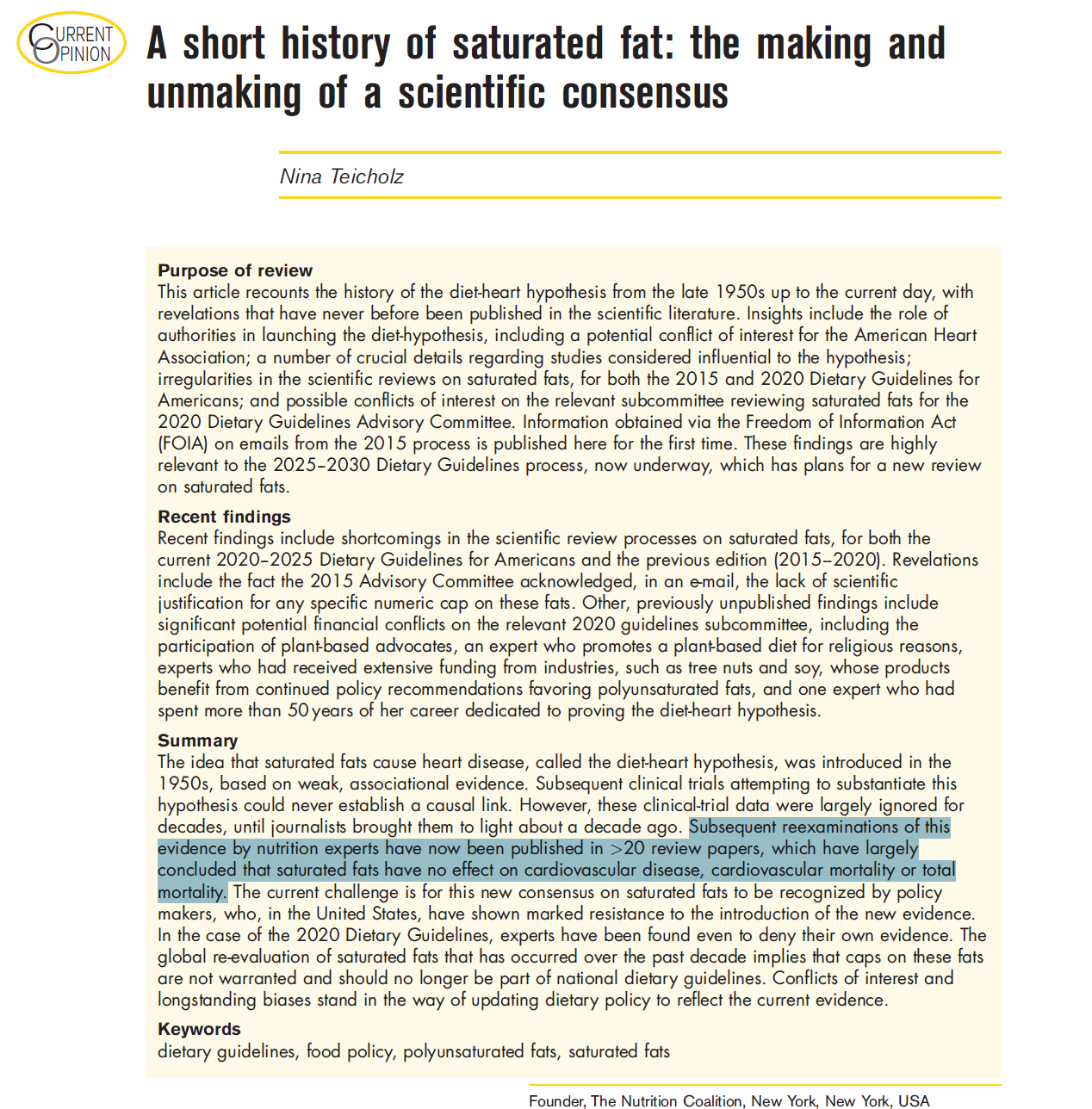
Dr. Nina Teicholz advocates for a diet emphasizing naturally occurring animal fats like butter, cheese, and meat, and other whole foods, arguing the low-fat paradigm has been detrimental to public health. Her work, especially the book The Big Fat Surprise, challenges decades of nutrition advice and promotes eating fat and reducing carbohydrates, suggesting that this approach can help reverse widespread health problems like obesity and diabetes. She also promotes whole-food animal products over industrially processed vegetable oils.
I am sure her message will be welcomed to many in the health freedom movement who want to have the liberty of eating copious quantities of animal fat. My intuition is that allowing one of the three dietary villains loose is not such a good idea. I’ve held to a philosophy that all three need to be limited: 1) sugar, 2) starch, 3) saturated fat. Patients and the public at large are willing cut down on two but rarely all three. I have found that people who have the discipline to limit all three tend to have normal body weight, excellent laboratory parameters including HbA1C and LDL-C, and be free of diabetes and coronary heart disease. Most popular diets tend to bargain for freedom on one of three. In the case of carnivore and keto-dieters, their rationalization is for saturated fat.
Teicholz reviewed Ramdsen et al who re-analyzed the Minnesota Coronary Experiment 1968-1973 which was a randomized trial of a low saturated fat diet versus one that replaced saturated fat with vegetable oil rich in linoleic acid. Unfortunately the nursing home and mental hospital population was not representative of the general population and exposure to the randomized diet was not long-enough to make meaningful difference in outcomes. However, given very limited follow-up the results demonstrated a modest reduction in total cholesterol and no difference in coronary heart disease or all cause mortality in this group who were 52 years of age at baseline and had at least one year on the diet. Five additional trials were synthesized with the odd’s ratio display as shown.
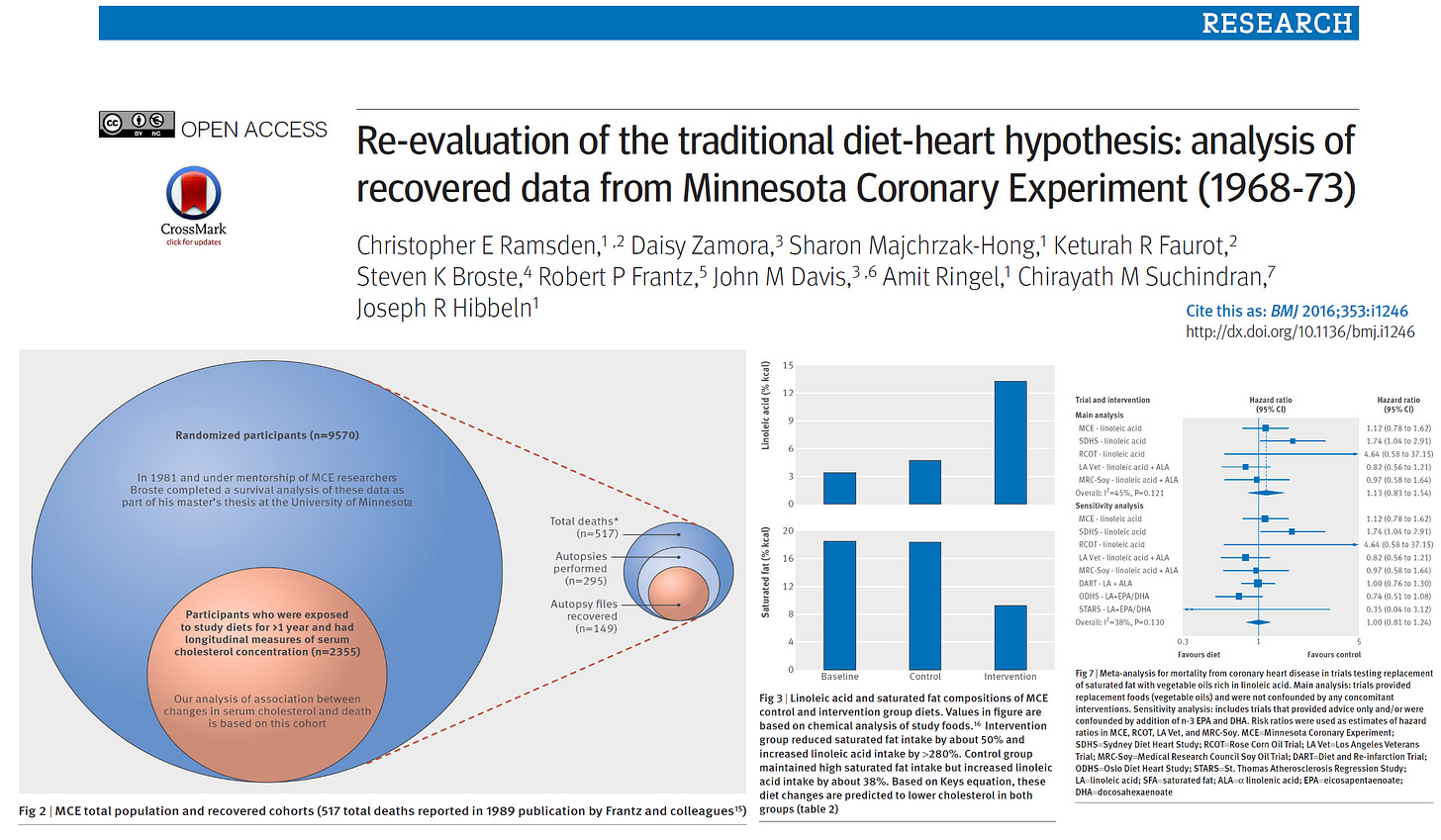
My view is that short-term dietary interventions with large loss to follow-up and no assured, adjudicated primary endpoint tend to bias the results to the null hypothesis. Even primary prevention drug studies that do not separate LDL-C enough or have long-durations of follow-up tend to be inconclusive. Decades ago smoking was the hyper dominant risk factor, people were far less obese, and there were few therapies or interventions to reduce the rates of coronary heart disease death. Are these data enough to let loose on saturated fats in the diet today? I will let you decide after you listen to this edition of FOCAL POINTS.
At the end I asked Dr. Teicholz for her reaction to the appointment of Dr. Ben Carson as our new National Nutrition Advisor. Carson is a Seventh Day Adventist who is a lifelong vegetarian and consumes no animal protein or saturated fat. I pointed out the published data on Seventh Day Adventists are very favorable in terms of longevity and freedom from many chronic diseases. The Adventist Health Study-2 (AHS-2) starting in 2002, enrolled over 96,000 SDAs across the U.S. and Canada, with mortality tracked through 2009 in one key analysis. It reported that vegetarians (across categories like vegan, lacto-ovo, pesco, and semi-vegetarian) had a 12% lower risk of all-cause mortality compared to non-vegetarians. Among men, the relative risk for cardiovascular death was 0.58 (0.38–0.89). For woman and overall the relative risks were protective but not statistically significant. While not randomized, I am impressed with these prospective, comparative data showing a vegan who consumes no animal fat or meat whatsoever, just the opposite of what Teicholz proposes, appears to live longer and have greater freedom from heart disease than there fat-consuming counterparts.
Please subscribe to FOCAL POINTS as a paying ($5 monthly) or founder member so we can continue to bring you the truth.
Peter A. McCullough, MD, MPH
FOCAL POINTS has partnered with Patriot Mobile to defend your medical freedom. Join Patriot Mobile today!



